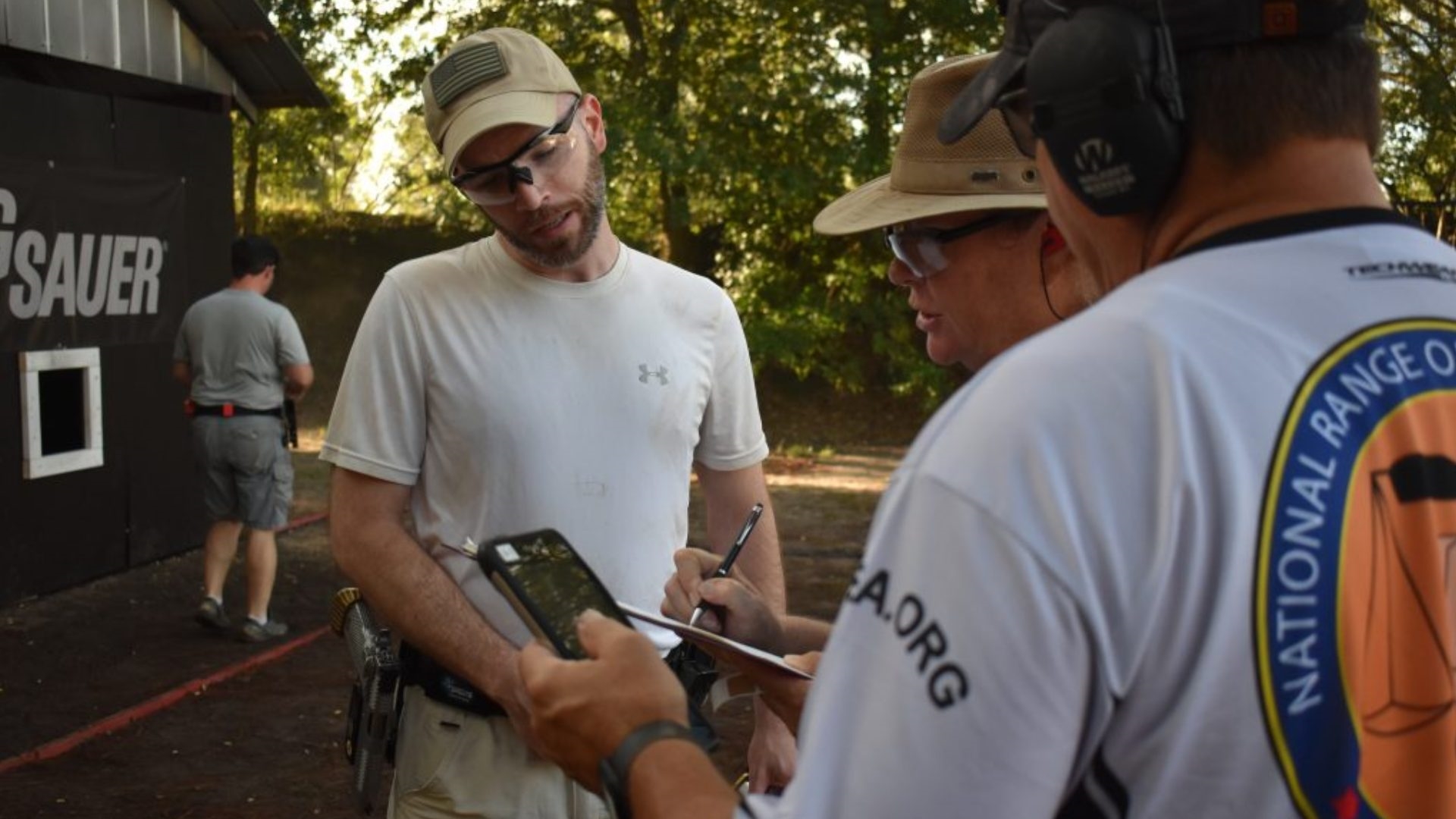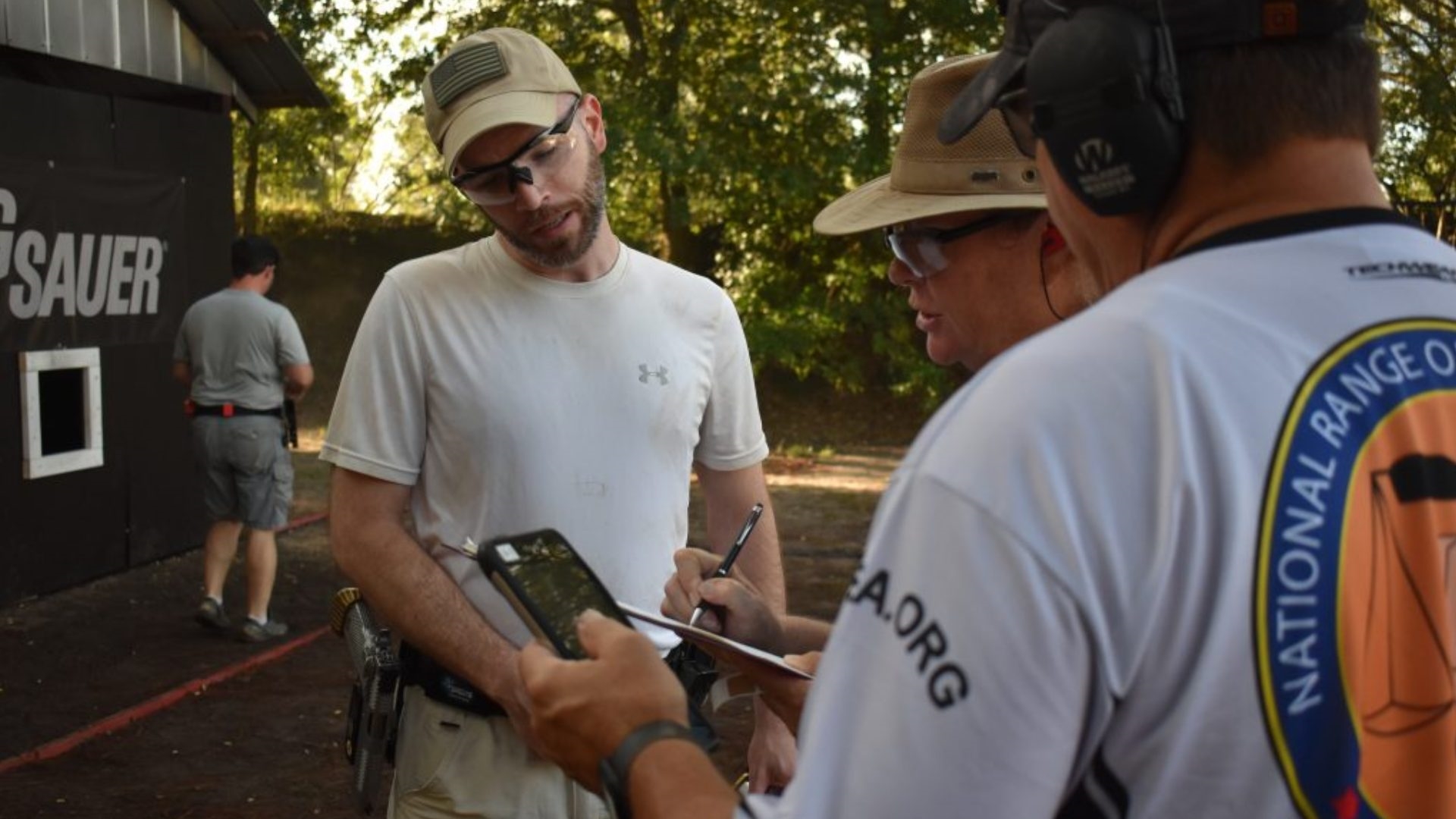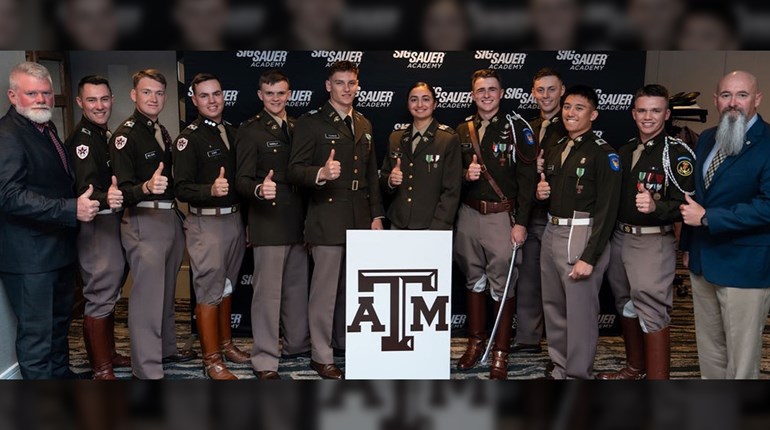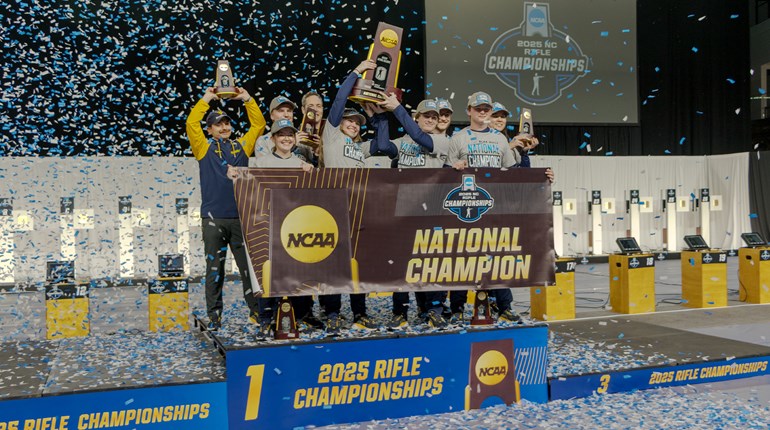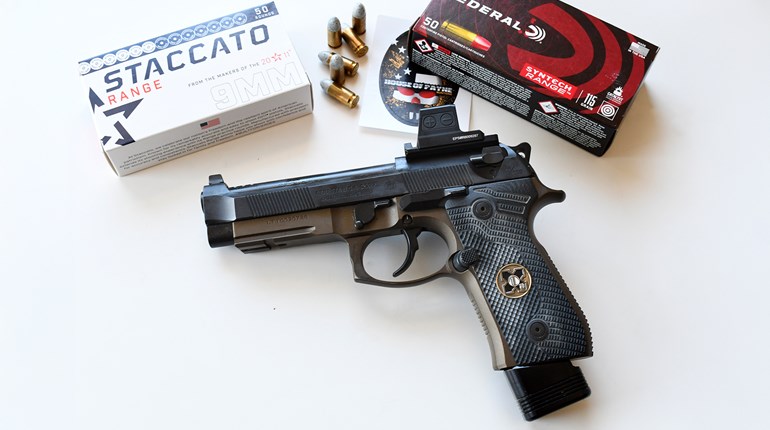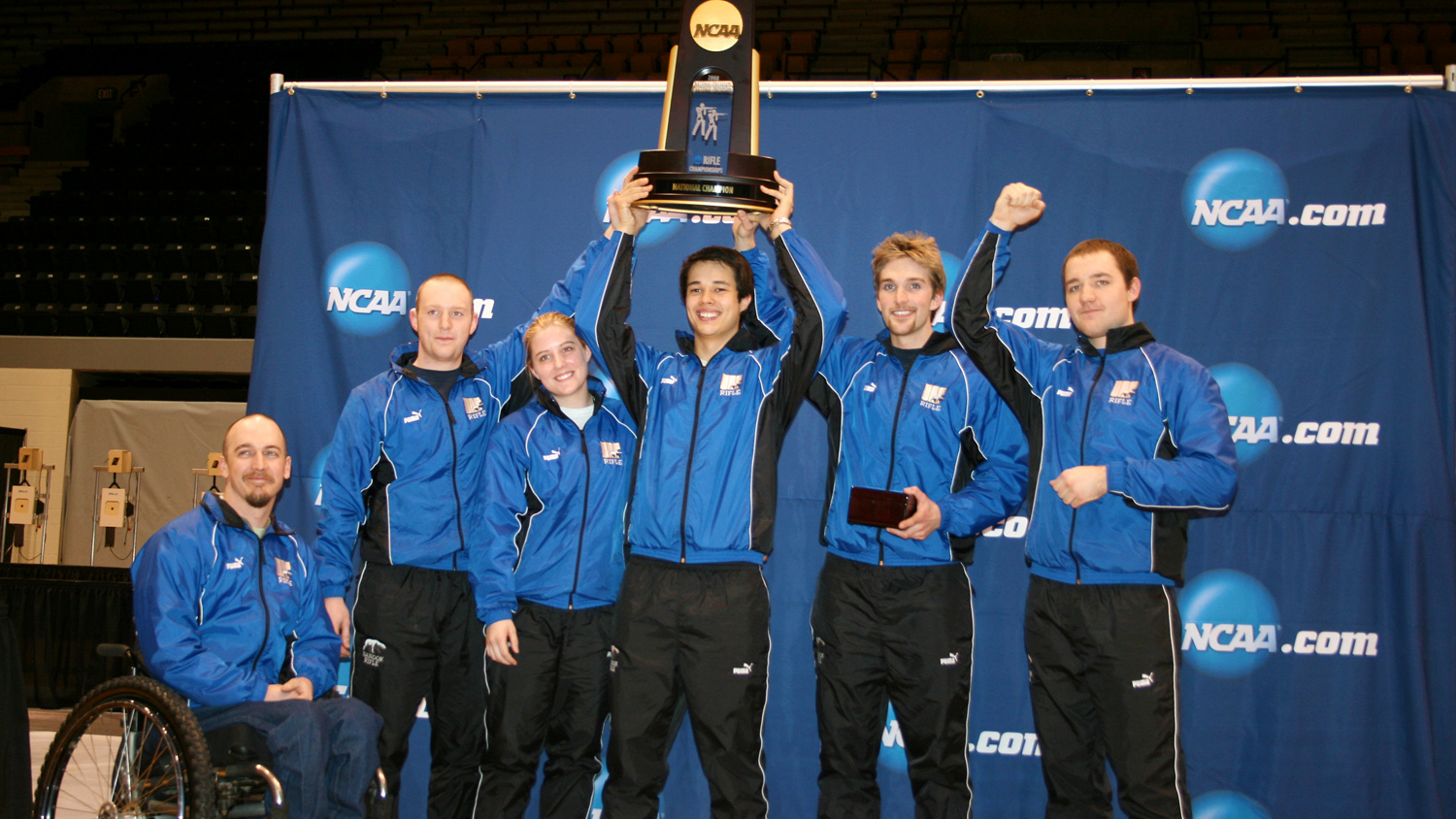
From the vault: an article on the 2008 NCAA Rifle Championships. And what’s noteworthy about a collegiate match that was held a decade ago at West Point? Well, the University of Alaska-Fairbanks Nanooks rifle team won their 10th championship that year. Read on for our coverage of the match, as published in the June 2008 issue of Shooting Sports USA.
Looking for a flaw in the seven qualifying teams that were aiming at taking down perennial powerhouse University of Alaska-Fairbanks was more difficult than challenging the Nanooks to a pickup game of plinking. The host of the championship, the United States Military Academy, treated its guests like VIPs since their team posted the greatest chance at knocking the Nanooks from winning their 10th overall title.
Texas Christian University brought a small but strong group of female shooters, and the Kentucky and Nebraska teams have become a common mainstay at the national championships. The 13-time NCAA Rifle Champion team from West Virginia was making its first appearance since 2002, and Nevada-Reno and Navy also boasted strong teams.
Any of those teams could have easily denied the Nanooks the chance of hoisting the national championship trophy above their heads. However, with the best collegiate air rifle team in the nation, Alaska-Fairbanks’ Cody Rutter, Taylor Beard, Patrick Sartz, and Christopher Olofsson gave the Nanooks its third straight and ninth NCAA Championship in 10 years. The defending champs outpointed, outplayed, and outsmarted Army in the air rifle event, 2350-2334, en route to edging the Black Knights 4662-4652.
In only its second appearance in the championships, TCU finished third with a score of 4627. “Our strength is our consistency,” said Horned Frogs coach Karen Monez. “They know it’s a tough competition and we really don’t put up the big numbers. But we’re very solid and consistent.”
Nebraska, Kentucky, and West Virginia finished fourth, fifth, and sixth, respectively. Mountaineers second-year coach Jon Hammond, who was the recipient of the 2008 NRA Collegiate Shooting Coaches Recognition Award, was proud to see his team back in the limelight.
“It’s really great to be back, and I’m obviously excited to see them back,” the Aberdeen, Scotland, native said. “We’re really just trying to relax and enjoy the occasion.”
His team will be losing only two seniors after this season, and he has a good crop of five freshmen who have gained the experience of being in the high-pressure situation of an NCAA Championship. “I’m hoping for great things over the next few years,” Hammond said. “We certainly can become used to the championships. I truly believe that we had one of the best recruiting classes this year, and I believe they will be proudly representing West Virginia in this capacity for the next few years.”
Hammond may have drafted the most promising class of freshmen this year, but Army coach Maj. Ron Wigger can rightfully claim to have the freshman of the year. Stephen Scherer of Billerica, MA, recently beat out Matt Emmons, a gold medalist at the 2004 Olympics, for a spot on the U.S. Air Rifle team.
“He’s the youngest cadet in the 200-plus years of the U.S. Military Academy to make the Olympic team,” Wigger said. “He wasn’t the most highly touted senior recruit this year, and there were several seniors in high school that were above him. But you could tell that he had something special about him, and he’s always had an interest in the military from day one. I feel like I stole one from the rest of the colleges.”
After completing the first day of this two-day event, Army came out the victor in the smallbore championships. However, they were holding just a 5-point lead to the then second place Nanooks. Wigger knew the victory was nice, but remained cautious since Alaska-Fairbanks' strength was in air rifle.
“To win at home would be the sweetest scenario because you would be in front of your family and your friends and your local community,” Wigger said. “We did the best we could today, but we need to remain calm because you can’t ever count out a team like Alaska.”
Chris Abalo knows this well. The Army senior won his first individual collegiate smallbore championship. In the finals of the smallbore individual championship, Abalo posted a score of 687.6 to easily beat out his next two competitors who just happened to also be his teammates. Army’s Brian Kern and Stephen Scherer posted scores of 681.6 and 680.6 to finish in second and third place, respectively.
“Abalo was with our team when we last won the national championship. To win this today was the final piece to his resume,” Wigger said. “He is such an upstanding citizen and an outstanding NCAA shooter. This win couldn’t have happened to a better person.”
A focused Abalo was also feeling the joy of the win. “I’m so excited. I’m a senior, so I’ve been trying to get the NCAA smallbore title for a while,” Abalo said. “It’s good that all of the work of the past four years paid off and I finally got it.”
Abalo knew that the second day of the championships wouldn’t be as easy for his team. “I think we’re the strong smallbore team in the NCAA,” he said. “I know we’re finishing the first day with a 5-point lead that might not be enough to stop Alaska in air rifle.”
The Nanooks easily had their way in the second day and were able to build a 6-point advantage going into the final relay. Army’s Scherer and the Nanooks’ Olofsson were competing right beside each other. Alaska-Fairbanks coach Dan Jordan knew that if Olofsson could just maintain his composure, then another championship would be going back to America’s Arctic University.
“I went up to Christopher and asked him who the top Swede would be today,” Jordan said. “You see, Christopher Olofsson and Patrick Sartz are both from Sweden, and they always make it a personal contest to see who will be the better shooter. So I’d rather have him worry about what Patrick shot and who was going to be the better Swede. When they start getting into a match like this, I don’t want them to worry about what Army is shooting. I want to keep it familiar.”
Olofsson put on an impressive display of marksmanship by posting a 592, just two points behind Sartz who shot in the previous relay. Sartz won the individual air rifle title. “It’s incredible to have this victory,” Olofsson said. “We knew it would be hard to overtake a very good Army team and their 6-point advantage in the second day, but we all really pulled together. This was a total team effort.”
This event was Sartz’s second time at the NCAA championship, and he knew that to win this year’s championship would definitely be more difficult than last year. “This year was kind of a down year for us since we didn’t have the experience core of seniors like we had last year,” Sartz said. “I was the only one with NCAA experience, and this is a big competition. For us to come out and win it like this bodes well for the next few years, too.”Learn more about how to shoot competitively in college.







